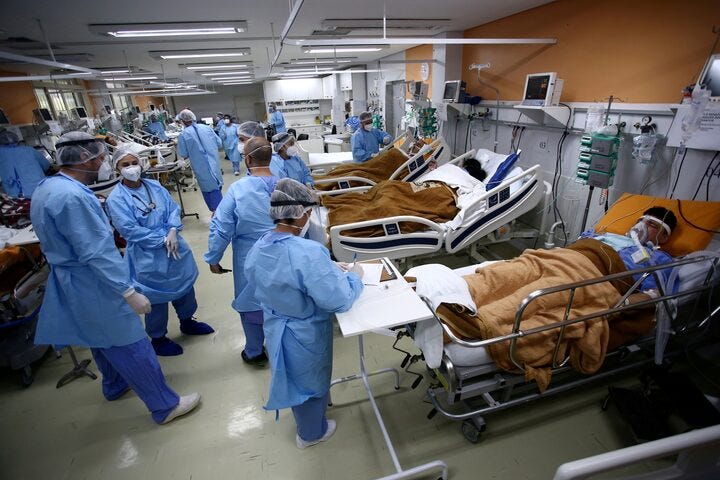Media and State-Induced Terror
I will always remember Saturday, 21 March, and Sunday,
22 March, as the weekend everything changed.
In the weeks prior, I was aware of what seemed to
be a growing threat from a newly discovered disease
called COVID-19, although most people seemed to be
calling it coronavirus. At first, I dismissed the news
around this virus as exaggeration and hyperbole. I had
already become highly suspicious and sceptical of the
mainstream media, and much of what I witnessed and
read seemed to fit into the usual patterns: take a subject,
imbue it with an ideology of fear, disseminate to the
public, wait for the band of doom-obsessed social media
foot soldiers to hammer home the message with sick
delight, censor anything that strays from the ‘accepted’
version of events, and repeat ad infinitum. I had long
before noticed how threats to our way of life regularly
highlighted by journalists and their band of crusaders
on Twitter never seemed to materialise. I wondered
why they were constantly so obsessed with apocalyptic
outcomes and seemed incapable of injecting any degree
of positivity or balance into news coverage. But as time
went along, slowly but surely my perception of this threat
changed. I noticed how many normally level-headed
people around me were now starting to worry. Amidst
a growing concern, it became apparent that this was
indeed a large-scale threat. The COVID-19 pandemic was
going to kill a lot of people. It was going to rip through the
population, causing mayhem and destruction. Hospitals
would be overwhelmed, and no family would be spared
its wrath. The fact that the government was talking
directly to the people every day to provide updates was
a sign that this disease was exceptionally serious. After
decades of little to no real threat, this was our time to
suffer.
By Saturday of that dreadful weekend, the fear was at
its peak. The disease had begun to claim its victims,
and projections indicated that it would soon be out of
control. By now, many people were already deciding to
stay indoors to protect themselves, many businesses
were planning for closure, hordes were descending on
shops to panic-buy items, and there was a palpable sense
of real fear. I spoke to most of my friends and family at
this time. They were all frightened. And now, so too was
I. At work, I spoke to a customer, who told me she was a
respiratory nurse in a local hospital. ‘Is it really as bad as
they are making out?’ I asked her.
‘Worse,’ she said. ‘Doctors are going to have to make
heartbreaking decisions about who lives and who dies.’
This chilled my blood. It was verification of what the
news was saying. We really were about to be consumed
by this killer virus. That night, my mood crashed and
anxiety took over. I couldn’t sleep, and when I did, I had
nightmares where I couldn’t breathe.
Virus, suffer, death.
Virus, suffer, death
Virus, suffer, death.
The message had hit home, as had my initial complacent
and cynical approach to it. On Sunday, I developed
symptoms. Oh, no! Was I to be one of the millions of
victims? Had I passed this evil thing on to my family and
loved ones? By this time, massive concern had taken over.
My girlfriend, Sarah, was crying. I phoned work
and told them I couldn’t come in because I may have the
virus. I was told that there was no requirement for me
now anyway. The next day, the entire country went into
lockdown. I was struggling to cope. I had no job, lost any
sense of hope, and felt nothing but anguish and terror. I
tried to numb the feeling by drinking heavily, and for the
next few months, I sought solace in alcohol.
And yet, as the days rolled by, it dawned on me that my initial
instincts had been correct. A lie was being spun. A lie so big
that its consequences would bring unimaginable horror.
Purchase The Imperfect Individual




